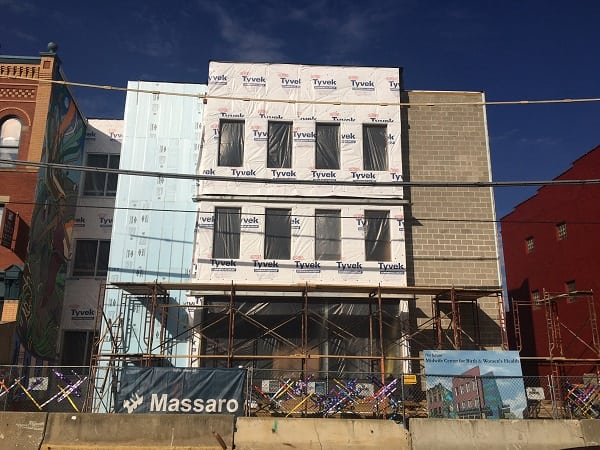
Oh, baby! Pittsburgh Midwife Center expansion to make it largest in U.S.
Through the 19th century, Pittsburgh’s Strip District was known for producing heavy industrial products — steel, cannons and George Westinghouse’s revolutionary air brake.
Soon, it will be known for producing babies.
The Midwife Center expansion, currently under construction, will double its 5,000 square feet, becoming the “the largest free-standing birth center in the country,” according to executive director Christine Haas. The center remains open during renovations.
“We’ve been operating at capacity for a few years,” Haas says. “All women and families who want the birth center option will be able to have it.”
Last year was the center’s busiest since opening in 1982. The 454 babies delivered in 2015 doubled the number from 2010.
The $3.5-million expansion will provide the center with five birthing suites which look more like rooms at a cozy bed and breakfast.
Women are increasingly choosing birth clinics over a hospital delivery for more reasons than comfort, Haas says.
“I think women are looking into what their options are, as our C-section rate is very high in this country, close to 33 percent,” Haas says. “Most medical experts agree that’s too high. They’re looking for other options, and birth centers have a much lower rate.”
Birth centers are ideal for certain types of pregnancies.
“We are designed for low-risk, healthy women,” Haas says. “It’s about more personalized care. … Our new birth suites will have tubs for water birth, hydrotherapy. Our midwives and nurses are trained in a lot of comfort measures.”
The range of services offered will increase, too.
“We see the need to add more programs to become a more comprehensive health center,” Haas says. “There will be new programs including behavioral health care, which our clients can access right at our center.”
In addition, there will be more classes and support groups, with the addition of a new classroom, and blood work will be able to be done here, she adds.
The center employs 25 staffers now, with an expectation to add about 10 more.
Funding for the expansion came from the Redevelopment Assistance Capital Program, and a $600,000 grant from the R.K. Mellon Foundation.
“We hope to be up and running by this spring,” Haas says.